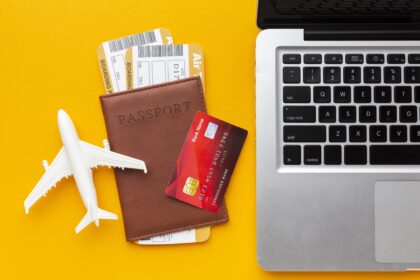Introduction:
As the host city for the 2024 Olympics, Paris is gearing up to welcome athletes and spectators from around the world. With its efficient and extensive transportation network, navigating Paris during the Games will be a breeze. In this insider’s guide, we’ll explore the various transportation options available in Paris during the Olympics, along with tips and insights to help you make the most of your journey.
1. Public Transportation:
– Paris boasts an excellent public transportation system, including buses, trams, and the iconic metro. The metro, in particular, is a convenient and efficient way to get around the city, with extensive coverage and frequent service. Consider purchasing a multi-day or multi-use ticket for unlimited travel on public transportation during your stay.
2. RER and Suburban Trains:
– The Réseau Express Régional (RER) is a regional commuter train system that connects Paris with its surrounding suburbs and neighboring cities. During the Olympics, RER trains will play a crucial role in transporting spectators to and from event venues located outside the city center. Be sure to familiarize yourself with the RER network and schedule to plan your journeys accordingly.
3. Cycling:
– Paris is a bike-friendly city with a growing network of bike lanes and dedicated cycling infrastructure. Consider renting a bike or using a bike-sharing service like Vélib’ to explore the city at your own pace. Cycling is not only a fun and eco-friendly way to get around but also allows you to bypass traffic congestion and experience Paris from a unique perspective.
READ ALSO: How to Win An All-Expense-Paid Trip to Olympic Games Paris 2024
4. Walking:
– Many of Paris’s major attractions and Olympic venues are within walking distance of each other, making walking an attractive option for getting around. Lace up your walking shoes and take a leisurely stroll along the Seine River, through charming neighborhoods like Le Marais, or around iconic landmarks like the Eiffel Tower and Notre-Dame Cathedral.
5. Taxis and Ride-Sharing Services:
– Taxis and ride-sharing services like Uber are readily available in Paris and offer convenient door-to-door transportation options. While taxis can be more expensive than public transportation, they can be a convenient choice for traveling to and from event venues or navigating the city late at night.
6. Plan Ahead and Stay Informed:
– To make the most of your transportation experience in Paris during the Olympics, plan your journeys ahead of time and stay informed about any changes or disruptions to services. Use mobile apps, official websites, and local resources to check transportation schedules, routes, and real-time updates.
Frequently Asked Questions:
1. Is public transportation in Paris safe and reliable during the Olympics?
– Yes, public transportation in Paris is generally safe and reliable, especially during major events like the Olympics. However, it’s always a good idea to remain vigilant and aware of your surroundings, particularly in crowded areas and on public transport.
2. Are there any special transportation passes or tickets available for the Olympics?
– Yes, special transportation passes and tickets may be available for the duration of the Olympics. These passes typically offer unlimited travel on public transportation within a specified time period and may provide discounts for Olympic spectators. Be sure to check with local authorities or transportation agencies for more information.
3. How can I navigate the Paris transportation system if I don’t speak French?
– While French is the primary language in Paris, many transportation signs and announcements are also available in English, as well as other languages. Additionally, transportation staff and personnel are often multilingual and can assist you with any questions or concerns you may have.
4. Are there any transportation options specifically for accessing Olympic venues located outside of Paris?
– Yes, the RER suburban train system and other regional transportation services will provide access to Olympic venues located outside of Paris. Special shuttle buses or dedicated transportation routes may also be available to facilitate travel to and from these venues.
Conclusion:
Navigating transportation in Paris during the 2024 Olympics is a straightforward and convenient experience thanks to the city’s efficient and extensive transportation network. Whether you choose to use public transportation, cycling, walking, or ride-sharing services, there are plenty of options available to help you get around the city and access Olympic venues with ease. By planning ahead, staying informed, and embracing the diverse transportation options available, you can enjoy a seamless and enjoyable Olympic experience in Paris.
In another related article, 2024 Paris Olympics Practical Budget Travel Guide







